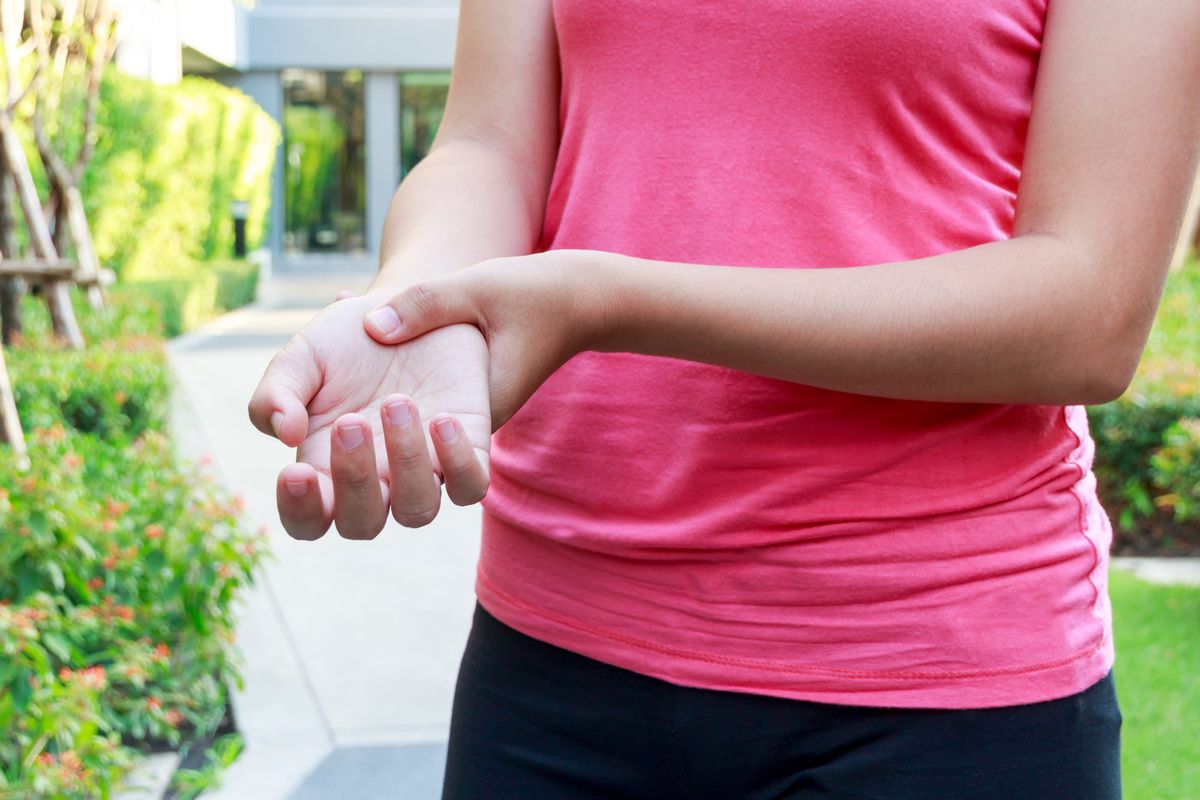Getting involved with organizations like the Psoriasis Foundation has taught me to be my own advocate. Instead of being a victim of my disease, I am an empowered patient.
It has also been a great motivator, and when I'm helping people deal with psoriatic arthritis, I forget that I'm that person as well.
And I've been that person since about the age of 12. I was in pain but doctors always dismissed my arthritis as growing pains. My dermatologist thought I had a fungal infection instead of psoriasis, and they never put two and two together. Eventually my doctor diagnosed me with arthritis, but just told me to take Motrin for the pain.
I was officially diagnosed with psoriatic arthritis when I was 26. By that point, my neck had started to fuse, my jaw was fusing, my knees would swell really badly, and I was walking with a limp. When I could barely walk anymore, my dad came to me and said I needed to see a specialist.
Before that, I didn't even know what a rheumatologist was, and my doctor had never suggested that I see anyone else. I come from a family that always looked to natural ways to heal whenever possible. We kept trying things like changing my diet, and I spent about five years— and a lot of money— going to chiropractors and naturopaths.
The gist of it is that I didn't really know what to do. I honestly thought I could cure my psoriatic arthritis naturally. And maybe some people do. I believe in holistic medicine and chiropractors, but they just didn't work for me. Looking back now, I think if I had gotten help earlier, I don't think my body would have as much damage.
I was hospitalized for 11 days
When I was finally diagnosed, I was put in the hospital for 11 days because I had so much inflammation. They started me on anti-inflammatories and systemic medications. I didn't want to go on methotrexate because of its possible side effects, but we couldn't get my condition under control no matter what we did. With methotrexate, it was about 30% under control; it worked only to a certain extent.
Throughout the 1990s, I was on pain relievers, anti-inflammatories, and systemics. By 1997, I had to have wrist replacement surgery in my right hand because mine was destroyed. (Ive had the surgery again since then, and will have another this year.) I was in intense pain, and Id already been on disability because I couldn't do anything.
My doctor had been recommending a biologic for years, but I was dismissing his suggestion because I was scared to take it. He finally asked me what the risk really was since my quality of life was so bad. I started taking one in 2003 and it has really helped me.
Once I started feeling better, I decided to try and go back to school so I could get a job eventually. I took one class and after things got easier and I could drive better, I started taking two and doing more things in general.
One thing I learned in the hospital—in occupational and physical therapy—was everyday things. I learned how to run my sweeper and got a tool that could help me get out of the bathtub. I used these kinds of work-arounds when I went to school. I ruined a lot of textbooks because I would tear out a chapter at a time so I could carry them with me.
I had no social support
In 2003, I also decided to start a support group in Pittsburgh, because I had never met anyone else who had psoriatic arthritis. I felt very isolated and I didn't have any social support. I wanted to interact with others who had this disease. I saw that I could change peoples lives by having a meeting, just giving them a place where they could come together and talk.
I was planning on getting my degree in anthropology, but I changed it to public service. I now plan to work in the nonprofit sector. The experience with other people with psoriatic arthritis really changed the course of my entire academic career. I am now on the Psoriasis Foundations board as well as the international board, where I am in charge of advocacy.
I am still in a lot of pain. I have nerve damage that can make it difficult to even touch my skin, much less sleep at night. But Ive learned to work around this. When I go to an international meeting, I just have to plan for a week of downtime after I get back. It's extremely difficult and really wipes me out.
But I've learned to plan everything before I go. I plan time to rest, how to get from the house to the airport, and how to get wheelchair assistance when I need it. When I get to a foreign country, I never know what I am going to run up against. Luckily I'm not alone, and when I meet up with my colleagues, things are always better.
As told to Tammy Worth
